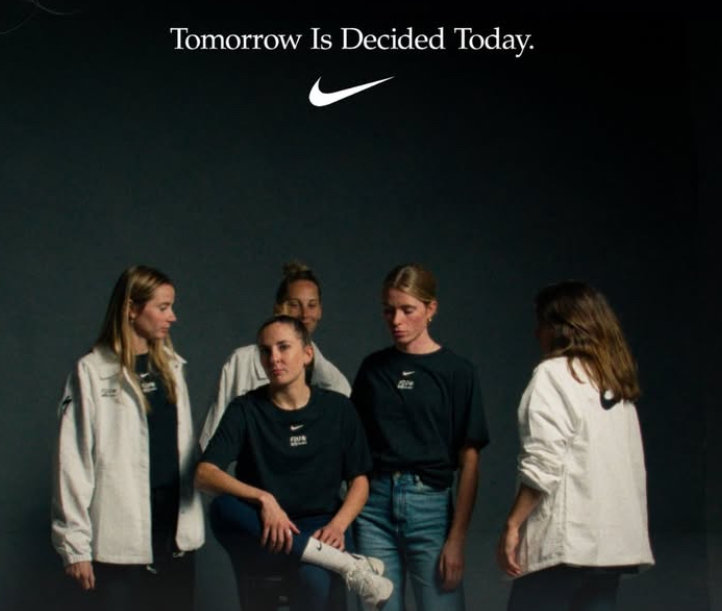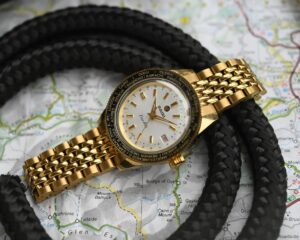After a prolonged absence from professional cycling, Nike has made a triumphant return as a sponsor, aligning itself with FDJ-Suez, one of the most prominent teams in women’s cycling. This partnership marks a significant moment in the sport, as FDJ-Suez is currently the only pro cycling team—across both men’s and women’s divisions—backed by the world’s largest sports brand. Nike’s reentry into cycling signals its renewed interest in the sport and highlights its commitment to the growing prominence of women’s professional cycling.
A Historic Relationship with Cycling
Nike has a storied history in professional cycling. The brand was a key sponsor during the sport’s most visible years, notably partnering with Lance Armstrong and the US Postal Service team during the late 1990s and early 2000s. At the time, Nike’s presence in cycling was transformative, helping to elevate the sport’s profile globally. However, the doping scandals of the early 2010s significantly tarnished the sport’s image, prompting Nike and other major sponsors to withdraw.
Nike’s return comes in a much-changed landscape, where cycling has worked hard to rebuild its reputation and establish cleaner competition. The brand’s decision to sponsor FDJ-Suez reflects a forward-thinking strategy, capitalizing on the rapid growth of women’s cycling and its increasing appeal to global audiences.
FDJ-Suez: A Rising Power in Women’s Cycling
FDJ-Suez is a standout team in the Women’s WorldTour, boasting some of the best talent in the sport. The French-registered squad has been a trailblazer in women’s cycling, consistently advocating for parity in sponsorship, visibility, and funding. By partnering with FDJ-Suez, Nike has chosen a team that not only excels in competition but also aligns with progressive values that resonate with modern audiences.
The team has had a successful 2023 season, highlighted by strong performances in prestigious events like the Tour de France Femmes and Paris-Roubaix. Its roster includes powerhouse riders like Grace Brown, Evita Muzic, and Cecilie Uttrup Ludwig, who embody the grit and determination that Nike has long celebrated. This collaboration brings mutual benefits: FDJ-Suez gains access to Nike’s unparalleled resources, while Nike reenters cycling with a team at the forefront of the sport’s growth.
Why Nike’s Return Matters
Renewed Investment in Women’s Sports
Nike’s partnership with FDJ-Suez underscores its commitment to advancing women’s sports. The brand has significantly ramped up its support for female athletes in recent years, and this sponsorship aligns with that vision. Women’s cycling has seen exponential growth, with the introduction of high-profile races like the Tour de France Femmes and greater media coverage. Nike’s involvement brings added legitimacy and visibility to the sport.
A Bold Market Strategy
Cycling has evolved into a global lifestyle phenomenon, with millions of amateur riders adopting the sport for fitness, recreation, and commuting. This cultural shift aligns perfectly with Nike’s marketing strategy, which has increasingly embraced lifestyle sports beyond traditional arenas. By sponsoring FDJ-Suez, Nike taps into cycling’s affluent and health-conscious demographic while promoting its performance-oriented apparel and gear.
Raising the Profile of Women’s Cycling
The disparity between men’s and women’s cycling has long been a point of contention. Women’s teams often operate with smaller budgets, less media exposure, and fewer sponsorship opportunities. Nike’s sponsorship of FDJ-Suez is a significant step toward leveling the playing field. With the support of such a high-profile brand, the team—and women’s cycling as a whole—will likely attract more fans, sponsors, and resources.
How Nike Enhances FDJ-Suez
Cutting-Edge Apparel and Gear
Nike’s innovation in sportswear is unparalleled, and FDJ-Suez riders now have access to cutting-edge apparel and equipment. Custom-designed kits tailored for performance and comfort in all conditions are expected to improve the team’s competitiveness. Nike’s expertise in crafting lightweight, aerodynamic, and weather-resistant gear gives FDJ-Suez a tangible advantage.
Additionally, Nike’s focus on sustainability aligns with cycling’s eco-conscious ethos. The company has been developing eco-friendly materials, and FDJ-Suez could become a flagship team for showcasing Nike’s commitment to reducing its environmental impact.
Global Reach and Marketing Power
Nike’s involvement brings FDJ-Suez into the spotlight of a much larger audience. With its global reach and marketing prowess, Nike can amplify the team’s visibility far beyond traditional cycling fans. Campaigns featuring FDJ-Suez riders could inspire a new generation of athletes and enthusiasts, particularly young women looking for role models in professional sports.
Leveraging Technology
Nike’s expertise extends beyond apparel to include advanced technologies that optimize athletic performance. By integrating wearable tech, data analytics, and innovative training tools, the partnership can help FDJ-Suez riders maximize their potential and stay ahead of the competition.
Challenges and Opportunities Ahead
While the partnership offers numerous benefits, it also presents challenges. The cycling industry, particularly on the women’s side, is still developing its commercial potential. Nike will need to navigate the complexities of the sport, including its fragmented calendar, varying audience demographics, and cultural differences across regions.
However, these challenges also represent opportunities for Nike to drive meaningful change. By investing in FDJ-Suez, the brand can help professionalize women’s cycling, attract more sponsors, and elevate the sport’s global standing.
Moreover, this partnership allows Nike to champion diversity and inclusion, values that resonate deeply with today’s consumers. Women’s cycling, with its emphasis on teamwork, resilience, and inclusivity, aligns perfectly with Nike’s brand ethos.
The Bigger Picture: Nike’s Long-Term Vision
Nike’s return to cycling may be the beginning of a broader strategy to reestablish itself in the sport. While FDJ-Suez is currently its only sponsored team, the partnership could pave the way for further involvement, including collaborations with men’s teams or grassroots programs.
The timing of Nike’s comeback is significant. Cycling is experiencing a renaissance, driven by increased interest in sustainable transportation, health, and fitness. Women’s cycling, in particular, is at a tipping point, with growing audiences and improved infrastructure. By entering the sport now, Nike positions itself as a leader in this new era of growth and innovation.
Final Thoughts
Nike’s sponsorship of FDJ-Suez is a landmark moment for professional cycling. It brings renewed energy and resources to women’s cycling, a segment of the sport that has long been underfunded and underappreciated. For Nike, the partnership represents an opportunity to engage with a dynamic and expanding market, showcase its innovative products, and align with progressive values.
As the 2024 season approaches, all eyes will be on FDJ-Suez as they compete with Nike’s support. This partnership has the potential to not only elevate the team’s performance but also redefine the role of major brands in professional cycling. In the years to come, Nike’s return may be remembered as a turning point for the sport, marking the dawn of a new era where women’s cycling finally receives the recognition and investment it deserves.
No comments yet.








